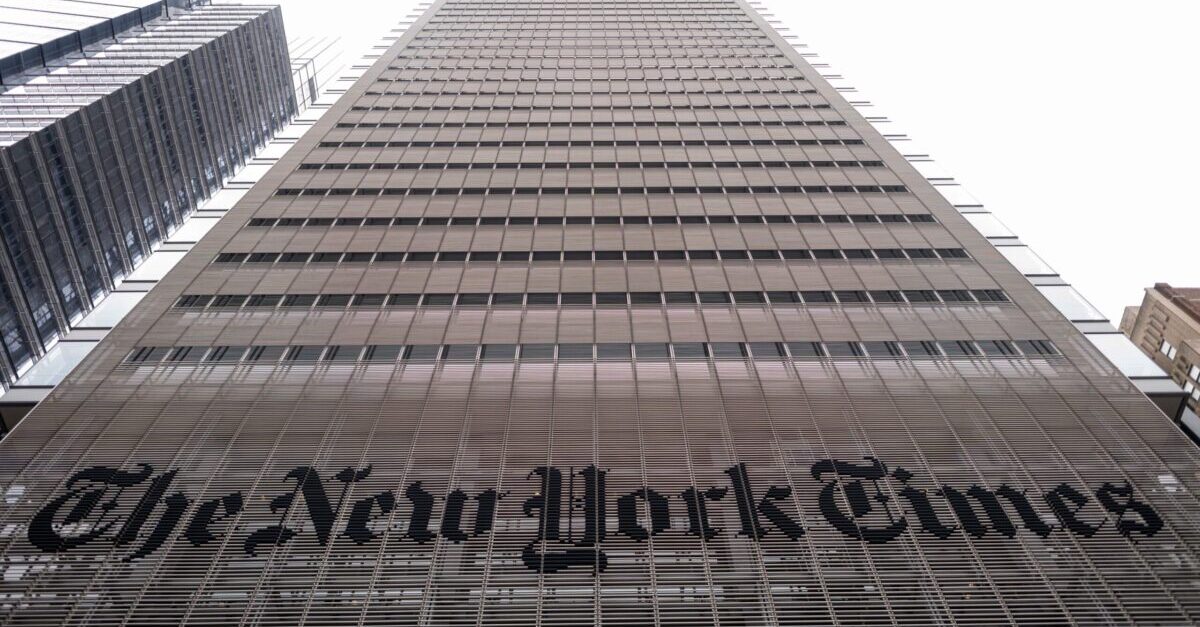
In a stunning two-page order, a state court judge ordered the New York Times not to publish or disseminate any of Project Veritas’s “privileged materials,” despite longstanding U.S. Supreme Court precedent against prior restraint of the press dating back to the time of the Pentagon Papers.
The Times‘s executive editor Dean Baquet invoked that landmark ruling in denouncing the court’s “dangerous” decision.
“This ruling is unconstitutional and sets a dangerous precedent,” Baquet said in a statement. “When a court silences journalism, it fails its citizens and undermines their right to know. The Supreme Court made that clear in the Pentagon Papers case, a landmark ruling against prior restraint blocking the publication of newsworthy journalism. That principle clearly applies here. We are seeking an immediate review of this decision.”
The ruling by Westchester County Supreme Court Justice Charles D. Wood followed a motion by lawyers for James O’Keefe’s organization claiming that the Times used “attorney-client privileged memoranda” from their litigation for publication.
Granting their request to halt further publication pending a Nov. 23 hearing, Wood wrote it was: “ORDERED that, until such time as this Court resolves the order to show cause, defendant The New York Times shall immediately sequester, protect, and refrain from further disseminating or publishing any of plaintiff Project Veritas’ privileged materials in the possession of The New York Times, or its counsel, and that The New York Times and its counsel shall cease further efforts to solicit or acquire plaintiff Project Veritas’ attorney-client privileged materials.”
The Times‘s counsel Joel Kurtzberg had urged the judge against taking this action, calling prior restraint “the most serious and the least tolerable infringement on First Amendment rights.”
“Prior restraints bear a ‘heavy presumption against . . . constitutional validity,’ ‘may be imposed only in the most exceptional cases,’ and can only be issued ‘upon a showing on the record that such expression will immediately and irreparably create public injury,'” Kurtzberg wrote on Thursday, shortly before the judge’s decision.
Emphasizing that there is no evidence the Times obtained the material improperly, Kurtzberg added: “Such an order is, on its face, the paradigmatic example of an unconstitutional prior restraint.”
In 1971, the watershed case of New York Times Co. v. United States established that the government must show a “grave and irreparable” danger before preventing the news media from reporting information—known legally as a prior restraint of the press.
The Times previously broke the news of the FBI searches of homes of Project Veritas staffers, including O’Keefe’s. The Reporters Committee for the Free Press recently filed a motion in a federal court asking a judge to “unseal the search warrant application, supporting affidavit, return, and any other related judicial documents filed in connection with the search warrant” for the O’Keefe raid.
From the motion:
On November 5, 2021, Judge Cave issued a search warrant permitting the government to seize and extract information from cellular phones found in O’Keefe’s home. A redacted copy of the warrant is attached hereto as Exhibit A. On or about November 6, 2021, federal authorities executed the warrant. As reported by The New York Times, the search occurred one day after O’Keefe “acknowledged that [Project Veritas] was under investigation by the Justice Department in connection with a diary reported to have been stolen from Ashley Biden, President Biden’s daughter.”
“The public and the press have a strong interest in access to these materials, which should provide information about the government’s justification for the search,” RCFP Executive Director Bruce Brown previously said in a statement.
After news of the ruling against the Times broke Thursday, Brown expressed grave concerns.
“This is the first prior restraint entered against the New York Times since the Pentagon Papers, and it is an outrageous affront to the First Amendment,” Brown said. “Prior restraints — which are orders not to publish — are among the most serious threats to press freedom. The trial court should have never entered this order. If it doesn’t immediately vacate the prior restraint, an appellate court must step in and do so.”
Attorney Libby Locke, who represents Project Veritas, called it “utter nonsense” to brand the order a prior restraint.
“A prior restraint is just that—a restraint before publication. Here, The Times already published Veritas’ attorney-client privileged communications, and the interim order and more permanent relief sought are narrowly tailored to that misconduct,” Locke told Law&Crime in an email. “Moreover, even if this were a prior restraint (it is not), there are certain circumstances where the law permits a court to enjoin the publication of materials before it happens—including, for example, by a protective order in litigation between litigants to prevent the use and dissemination of attorney-client protected materials. And this is no greater restraint on speech than the myriad protective orders the Times has been subject to in other litigation proceedings.”
The order’s language appears to block the Times from publishing Project Veritas’s “privileged” materials either prospectively or retroactively.
Former federal prosecutor Mitch Epner, who has consulted with media organizations on First Amendment and copyright issues and is now of counsel with Rottenberg Lipman Rich PC, told Law&Crime in a phone interview that Project Veritas’s counsel has it wrong on the meaning of prior restraint—and that’s just what this order is.
“Even though it’s only an interim order, it is clearly a prior restraint, and it strikes at the very heart of the First Amendment protection of the U.S. to publish,” Epner said in a phone interview.
As for Locke’s definition, Epner said: “It is not the way people understand the term prior restraint.”
“It is a restraint of what can be published before there has been a ruling on the merits,” he noted.
With the Times already announcing plans to appeal, Epner expressed that he would be “shocked” if New York’s Appellate Division does not act to overturn the order before the next hearing on Tuesday.
Read the order below:
[photo by JOHANNES EISELE/AFP via Getty Images]